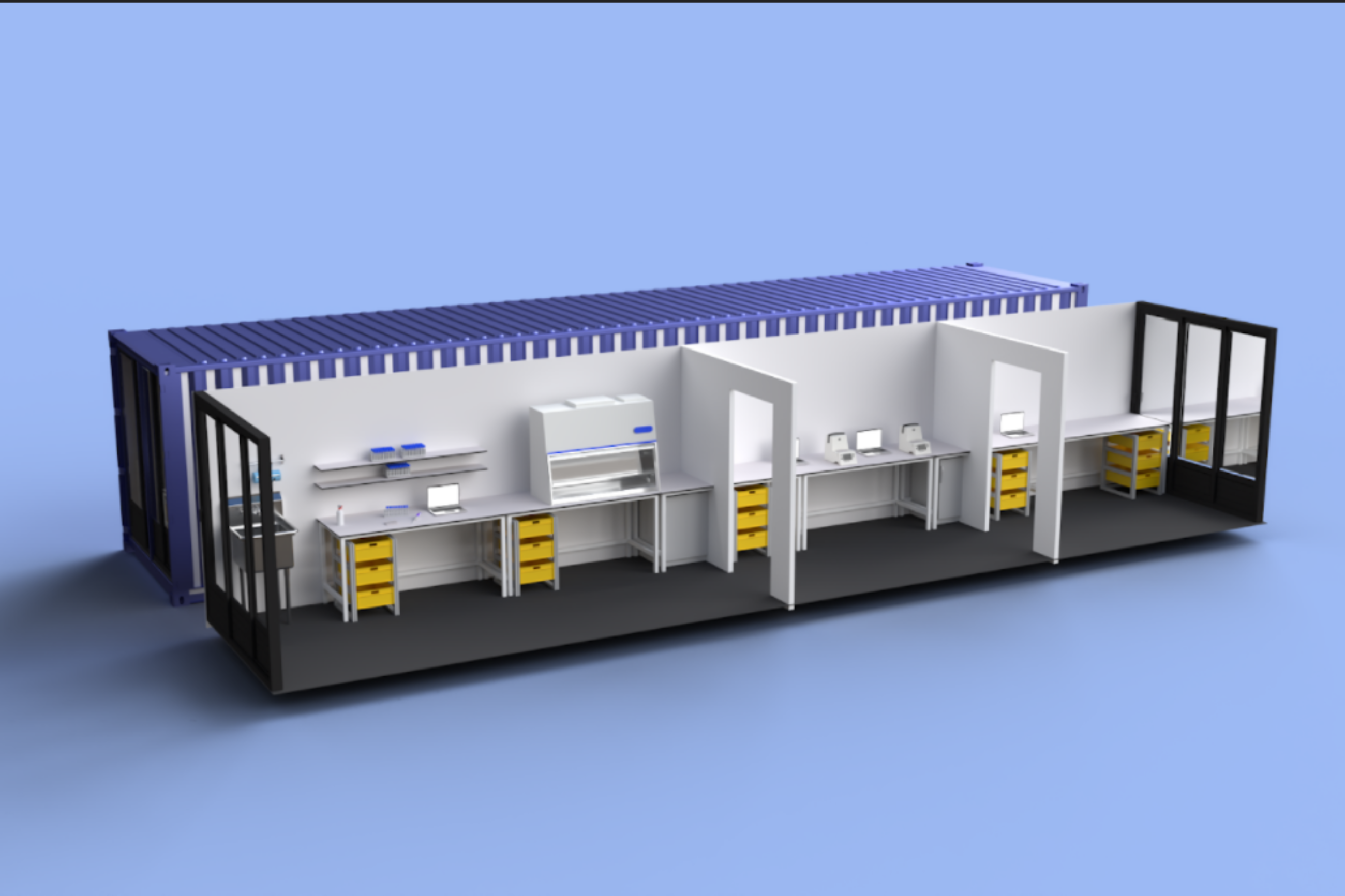OpenCell has just published the results of COVID viral mutant surveillance on the Isle of Jersey. They undertake DNA sequencing, using technology from Oxford Nanopore, to sequence the coronavirus genome in a shipping container laboratory. The study shows the potential of providing mobile viral monitoring around the world to help control COVID infection.
OpenCell CEO Helene Steiner says: “The benefits of this speed for a remote Island nation such as Jersey can not be underestimated. The near real-time communication of data to inform public health decisions is a gamechanger. This gets you ahead of the curve and can be used to make more informed decisions on border control, contract tracing and ultimately save lives.”
Gordon Sanghera, CEO, Oxford Nanopore Technologies commented: “Our goal is to enable the analysis of anything by anyone, anywhere, which is why we chose to develop a low-cost handheld sequencer as well as our subsequent higher throughput devices. Through this work to sequence every COVID-19 positive sample in Jersey - at the airport indeed - and inform local public health decision making, the OpenCell team have demonstrated the benefits of rapid, decentralised sequencing - in COVID-19, but also potentially for tackling future outbreaks.”
Lead researcher at OpenCell Sara Farahi says: “Jersey is a unique location in that every passenger who has entered in the last 18 months has undergone a PCR assay. This means we essentially have a Galapagos of Covid providing us an unprecedented testing environment from an epidemiological perspective.”
The UK has the world's most advanced DNA sequencing capability. However, sequencing of the COVID genome is still primarily available in centralized facilities due to the advanced technology required. OpenCell have pioneered the use of high throughput PCR diagnostic facilities in rapid-response shipping container labs and have operated a PCR laboratory adjacent to the airport on the Isle of Jersey since September 2020 providing screening of incoming passengers. The team used the MinION Mk1C — a portable sequencing device developed by Oxford Nanopore Technologies - which enables real-time, accurate analysis of DNA and RNA.
The study describes the high throughput diagnosis of COVID infection using gold standard qPCR detection methods. However, with the addition of an additional sequencing workflow, the team have been able to demonstrate that positive cases can be immediately sequenced locally (rather than shipped to a remote centralised facility) providing a variant analysis in as little as 12 hours.
CTO Thomas Meany says: “This demonstrates the accuracy of combined rapid response PCR and sequencing technology. The concern is that more virus mutations may occur and that vaccines may not be effective on these variants. The speed of response is key.”
